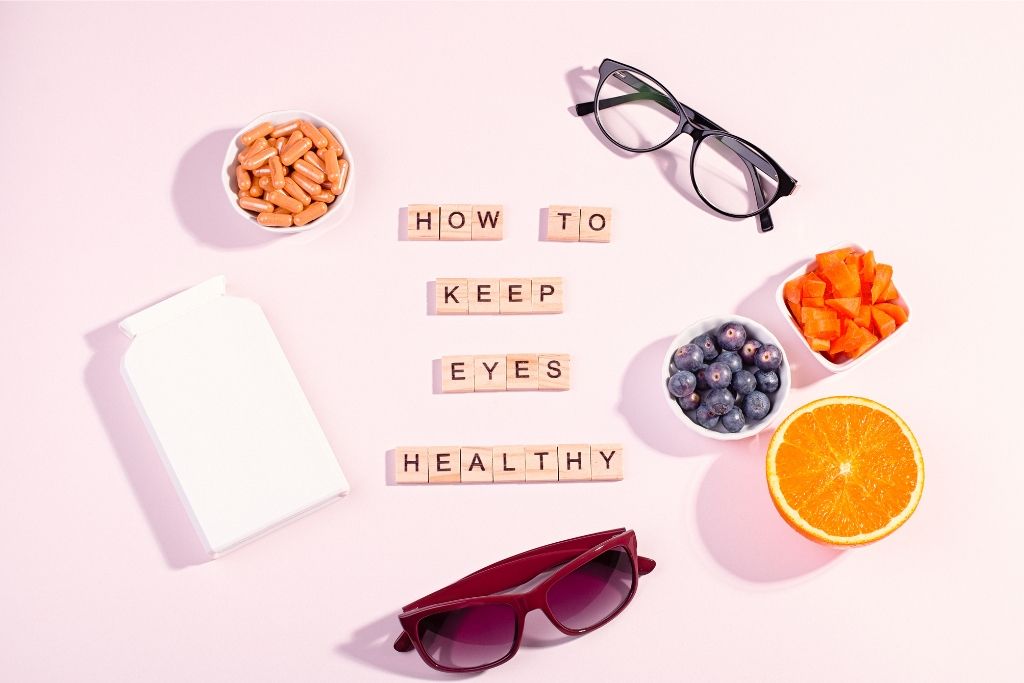Your eyes are one of the most important organs in your body, and maintaining good eye health should be a top priority.
Good vision allows us to go about our daily lives with ease and helps us to enjoy many of the simple pleasures that we often take for granted.
Unfortunately, many factors can adversely affect our eyesight, including age, genetics, and lifestyle habits.
However, there are plenty of steps that you can take to improve your vision and protect your eyes.
Here are the top 10 tips for better eye vision.
1)) Get Regular Eye Exams
Regular eye exams are essential to maintaining good eye health.
They can help to detect potential problems early on and prevent further damage to your vision.
Make sure to schedule an eye exam with your eye doctor at least once every two years.
Checklist for Choosing the Right Optometrist:
- Check Credentials: Ensure the optometrist is licensed and has the necessary qualifications.
- Read Reviews: Look up online reviews to see what other patients have experienced.
- Ask for Recommendations: Seek recommendations from friends, family, or your primary care doctor.
- Evaluate Experience: Consider how many years the optometrist has been practicing, especially if you have specific vision needs.
- Explore Specializations: If you have particular eye conditions, find out if the optometrist specializes in those areas.
- Assess the Technology Used: Make sure they use up-to-date technology for eye exams and treatments.
- Verify Insurance Acceptance: Confirm that the optometrist accepts your health insurance plan.
- Consider the Location and Hours: Look for a conveniently located office with hours that suit your schedule.
- Evaluate Customer Service: Observe the friendliness and helpfulness of the staff.
- Inquire About Emergency Care: Ask if they offer emergency services outside of regular business hours.
Regular eye exams are just one step towards safeguarding your vision, but choosing the right optometrist is equally important.
By following the checklist provided, you can ensure that your eye care is in capable and trusted hands.
Prioritizing eye health through informed choices aids in maintaining and improving your vision, contributing to overall well-being and quality of life.
Take proactive measures today, and enjoy the benefits of clearer, healthier eyesight for years to come.
2)) Wear Sunglasses
Overexposure to sunlight can damage your eyes over time.
Wear sunglasses that protect against both UVA and UVB rays to prevent eye damage from the sun.
Polarized lenses can help to reduce glare and improve visibility.
3)) Quit Smoking
Smoking is one of the most damaging habits for your eyes.
It can cause a host of eye problems, including cataracts, macular degeneration, and chronic dry eye.
Quitting smoking can help to reduce your risk of developing these problems.
Tips for Quitting Smoking:
- Set a Quit Date: Choose a specific date to quit smoking and mark it on your calendar. This will give you a concrete goal to work towards.
- Identify Triggers: Recognize situations or activities that make you want to smoke. Try to avoid these triggers or find alternative coping mechanisms.
- Seek Support: Tell friends, family, and coworkers about your decision to quit and ask for their encouragement. Joining a support group or talking to a counselor can also be beneficial.
- Use Nicotine Replacement Therapy: Consider using nicotine patches, gum, or lozenges to help manage withdrawal symptoms and reduce cravings.
- Stay Active: Engage in physical activities to reduce stress and distract yourself from cravings. Exercise can also improve your mood and overall health.
Quitting smoking is a challenging but rewarding journey that can significantly improve your eye health and overall well-being.
By recognizing the harmful effects smoking can have on your vision and implementing these practical tips, you are taking an essential step toward better eye care and a healthier lifestyle.
Remember, it's never too late to quit, and the long-term benefits for your eyes and overall health are well worth the effort.
4)) Eat A Healthy Diet
A balanced diet is essential to maintaining good eye health.
Eating plenty of fruits and vegetables can help to protect your eyes against damage from free radicals.
Some of the best foods for your eyes include leafy greens, carrots, and citrus fruits.
5)) Take Frequent Breaks
Staring at a computer screen or other digital devices for long periods can cause eye strain and fatigue.
Take breaks every 20-30 minutes to rest your eyes and give them a chance to refocus.
6)) Practice Good Hygiene
Good hygiene can help to prevent infections that can damage your eyesight.
Make sure to wash your hands frequently, especially before touching your eyes or applying contact lenses.
7)) Exercise Regularly
Regular exercise can help to improve circulation and reduce your risk of developing eye problems related to poor blood flow.
Exercise can also help to reduce your risk of developing age-related macular degeneration.
Pro-Tip: Home Gym and Eye Health
Investing in a home gym can be a game-changer for your eye health. Regular workouts improve blood circulation, which is crucial for maintaining optimal eye function and preventing issues like age-related macular degeneration.
With a home gym, you have the convenience of exercising at any time, making it easier to incorporate a consistent fitness routine into your daily life.
Whether you're using a treadmill, stationary bike, or resistance bands, these activities can strengthen your cardiovascular system and benefit your eyes.
Start building your home gym today and take a proactive step in safeguarding your vision and overall well-being.
Ready to leap?
Explore equipment options now and begin your journey toward healthier eyes!
8)) Use Proper Lighting
Inadequate lighting can strain your eyes and make it difficult to see.
Make sure to use proper lighting when reading or working on close-up tasks.
Adjust the brightness and contrast of your computer screen to reduce eye strain.
Pro-Tip: Investing in a good-quality reading lamp is an important step to protecting your vision.
Reading lamps provide the right amount of light intensity and direction needed to reduce eye strain when reading or working on a computer.
By reducing the amount of glare from overhead lights, they can help prevent headaches, fatigue, and other symptoms associated with eyestrain.
They also come in different styles and colors so you can find one that fits your needs perfectly while adding some style to your home office or workspace.
With all these advantages, it's no wonder why investing in a good quality reading lamp is an essential part of taking care of our eyesight!
9)) Properly Manage Chronic Conditions
Chronic conditions such as diabetes and hypertension can damage your eyesight over time.
Proper management of these conditions can help to prevent eye problems and reduce your risk of developing vision loss.
10)) Get Enough Sleep
Sleep is essential to good overall health and is also important for maintaining good eye health.
Make sure to get enough sleep each night to give your eyes a chance to rest and rejuvenate.
Tips for Achieving Better Sleep:
- Establish a Regular Sleep Schedule: Go to bed and wake up at the same time every day, even on weekends, to regulate your body's internal clock.
- Create a Relaxing Bedtime Routine: Engage in calming activities like reading or taking a warm bath before bed to unwind and prepare your mind for sleep.
- Optimize Your Sleep Environment: Ensure your bedroom is cool, quiet, and dark. Consider using blackout curtains or a white noise machine if needed.
- Limit Screen Time Before Bed: Reduce exposure to phones, tablets, and computers at least an hour before bedtime to prevent blue light from interfering with your sleep.
- Watch Your Diet and Caffeine Intake: Avoid large meals, caffeine, and alcohol close to bedtime. A balanced diet and watching what you consume can significantly influence sleep quality.
Prioritizing sleep as part of your daily routine is essential not only for overall health but also for your eye health.
By adopting healthier sleep habits, you are giving your eyes the necessary rest they need to recover and perform at their best.
These changes can enhance both your daily productivity and long-term vision well-being.
Quality sleep is the foundation of a healthier lifestyle and plays a crucial role in maintaining optimal eye function.
Conclusion
Prioritizing your eye health is an investment in your well-being, and it begins with integrating meaningful lifestyle practices into your daily routine.
By effectively managing the critical areas outlined in this guide—such as quitting smoking, nourishing your body with a healthy diet, taking regular breaks from screens, practicing good hygiene, maintaining a regimen of regular exercise, and ensuring a restful night's sleep—you can significantly safeguard your vision.
Encourage yourself and those around you to adopt these proactive measures, and remember, regular eye exams remain your most powerful tool in identifying issues early.
With these strategies in place, you’re not only enhancing your eye health but also contributing to a healthier, happier future with clear, vibrant vision.
Related Articles and Guides:
Download Our Free E-book!







